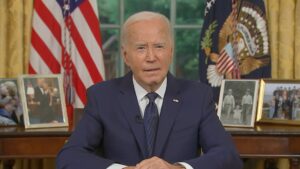‘Five-Alarm Crisis’: US Has Shortage of 300K Teachers, School Staff
National Education Association president Becky Pringle on Thursday warned that the U.S. teacher shortage has spiraled into a “five-alarm crisis,” with nearly 300,000 teaching and support positions left unfilled and policymakers taking desperate—and in some cases, questionable—measures to staff classrooms.
Pringle told ABC News that teachers’ unions have been warning for years that chronic disinvestment in schools has placed untenable pressure on educators as they face low pay and overcrowded classrooms.
“We have a crisis in the number of students who are going into the teaching profession and the number of teachers who are leaving it,” Pringle told the outlet. “But, of course, as with everything else, the pandemic just made it worse.”
As a survey taken by the NEA earlier this year showed, 91% of educators said pandemic-related stress and burnout is a “serious problem” in the profession, and 55% reported they plan to leave their profession earlier than originally planned.
Chronically low pay is a problem in the profession, and educators across the country report it is a contributing factor as teachers leave schools. The national average salary for teachers is $64,000, but in states including Mississippi, South Dakota, and Florida, many educators earn far less.
As The Week reported on Monday, the average salary of teachers in Arizona is $52,000 per year as they face one of the highest teacher-to-student ratios in the nation.
“I do think the main root cause of the teacher shortage is pay,” Justin Wing of the Arizona School Personnel Administrators Association told Fox 10 Phoenix, adding that the state has a “very concerning” shortage of 2,200 teachers.
While advocates have for years called on state lawmakers to invest heavily in schools in order to recruit and retain highly qualified educators—with Arizona teachers staging a walkout in 2018 after legislators passed corporate tax cuts that would have left the state $100 million short—Republican leaders this year have turned to other methods of keeping classrooms sufficiently staffed.
On Thursday, Florida Gov. Ron DeSantis unveiled the state’s official website recruiting veterans to help fill in the gaps in schools. Former armed service members do not need a bachelor’s degree to teach the state’s children—in keeping with a trend across the country, as at least 12 states have changed or eliminated their licensing requirements for educators in the last year, according to the National Council on Teacher Quality.
According to the Florida Education Association, students in the state are approaching the school year with 8,000 teacher vacancies compared with 5,000 in 2021.
Pringle added that teachers need “professional respect” to stay in their profession.
“For them that is three things,” she said. “Professional authority to make teaching and learning decisions for their students. Professional rights to have the conditions and resources to do the jobs they love. And professional pay that reflects the importance of the work they do.”
Originally published at Commondreams.org.











